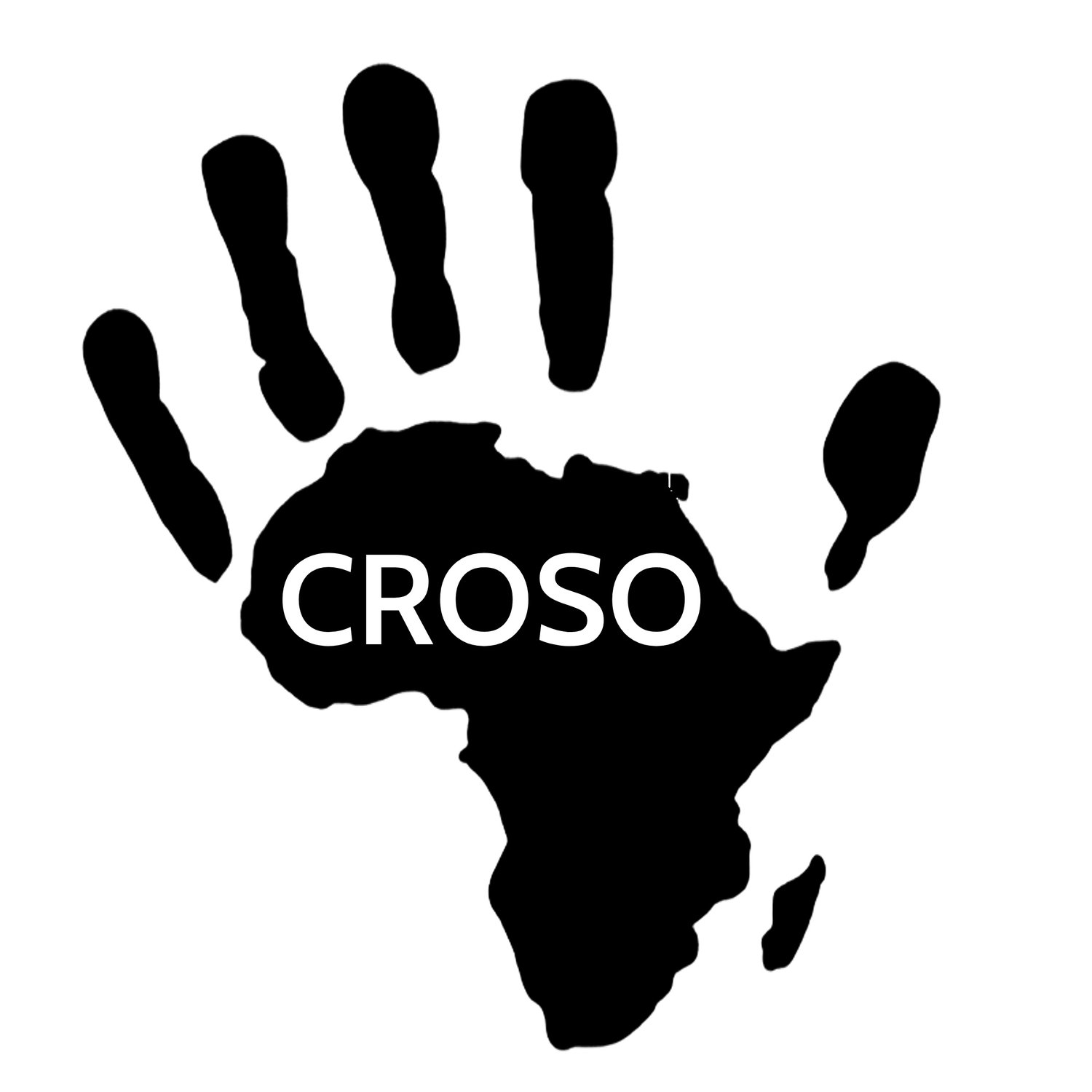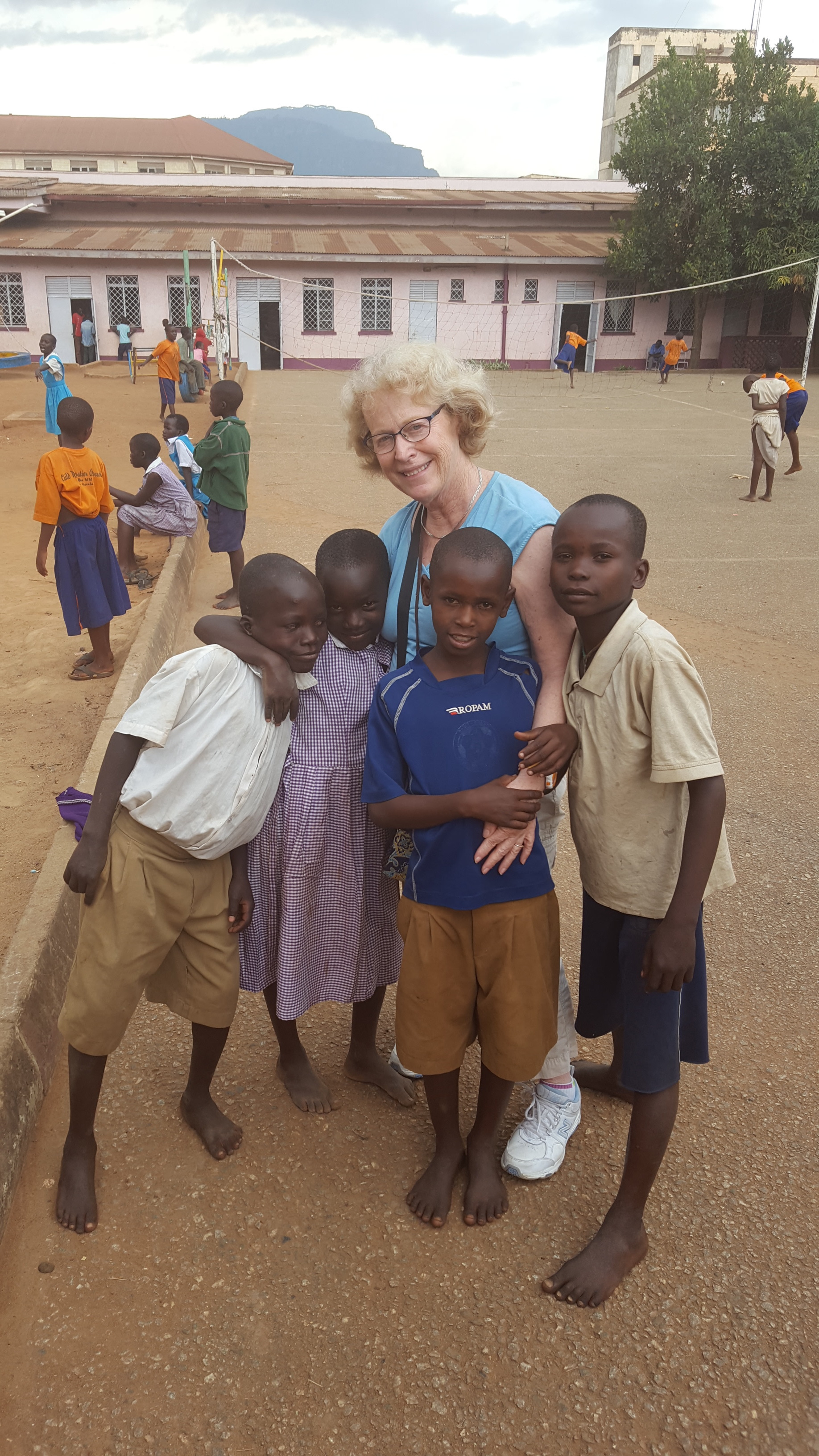CROSO's Partnership Model
Written by Sally Ryan, former CROSO Board Member and current Committee Member
Sally Ryan at the C.R.O. project center in Mbale in 2016 with C.R.O. youth.
Our driver turned off a busy street early one morning in June 2016, and drove down a street/alley in Mbale, Uganda. We drove into the courtyard of C.R.O., Child Restoration Outreach, an organization about which I had been reading for several years in the applications of our CROSO scholars. C.R.O. is an NGO in Uganda that provides physical and social support to street children, helping to reintegrate them into the community. Despite the primitive play equipment and the dusty grounds, I knew that we had just arrived in a sanctuary for children off the street. To reinforce that feeling of safety and refuge, I heard the voices of children singing their morning greeting songs as they gathered to prepare for school with their teachers. Most of the children wore their orange C.R.O. signature t-shirts, and they seemed to be of one voice, ready for the challenges of their day.
After joining some of the staff at their morning meeting, I walked with the C.R.O. social workers through the streets of Mbale and saw in high definition the recent past lives of the C.R.O. children. Boys and girls from 4-15 years of age were picking up charcoal to sell, sorting beans for the market sellers to earn a penny or two, sleeping in corners with smiles on their faces from the glue or fuel they had sniffed in order to quell their hunger pains. I observed the interventions and gentle invitations by the social workers to children they encountered, an invitation to join the program at C.R.O.
C.R.O. students in the rehabilitation class in their first year off the streets.
One young fellow tentatively accepted the invitation of the social workers, and followed us back to the C.R.O. project center to formally begin the process of understanding the program that C.R.O. would offer him. If he accepted, he would partake in a year of rehabilitation where he would begin to practice social skills, experience team building through sports and peer groups, begin to learn English, and practice personal values. He would then get support to enter the appropriate school level to pursue his education. During his primary and secondary school years, he would continue to connect with C.R.O. for a daily meal, his school uniform, study support, personal coaching, sports teams, etc. For a very small salary, these social workers and teachers devote their lives to former street children, in order to see these young people reach their potential.
Until CROSO began its work (just over ten years ago), there was a life blockade ahead for those young C.R.O. kids. There was no support beyond secondary school for those who had visions of going into education, medicine, business or civil engineering. As Molly and I visited with the teachers and the social workers of these former street children, they all beamed with pride at how the scholars supported by CROSO were flourishing, young people who once came to C.R.O. with the dust of the street on their skin. Social worker Carol’s face lit up with delight as she said, “We are seeing a doctor in training now, and soon we will have our first lawyer! CROSO completes our vision for our children.”
Bwayo Moses (C.R.O. Program Manager in Mbale) and Molly MacCready (CROSO Executive Director) meeting in November 2017.
We heard that same message from Bwayo Moses, the C.R.O. manager who praised the way CROSO respectfully partners with C.R.O. CROSO listens carefully to all input from C.R.O. staff who have literally raised these children up, they who know these young scholars almost as parents know their own children. CROSO’s relationship with C.R.O. ensures that our program of scholar support is appropriate, realistic, and ennobling as we support young talented people to reach for their fullest potential through scholarships to post-secondary programs.



